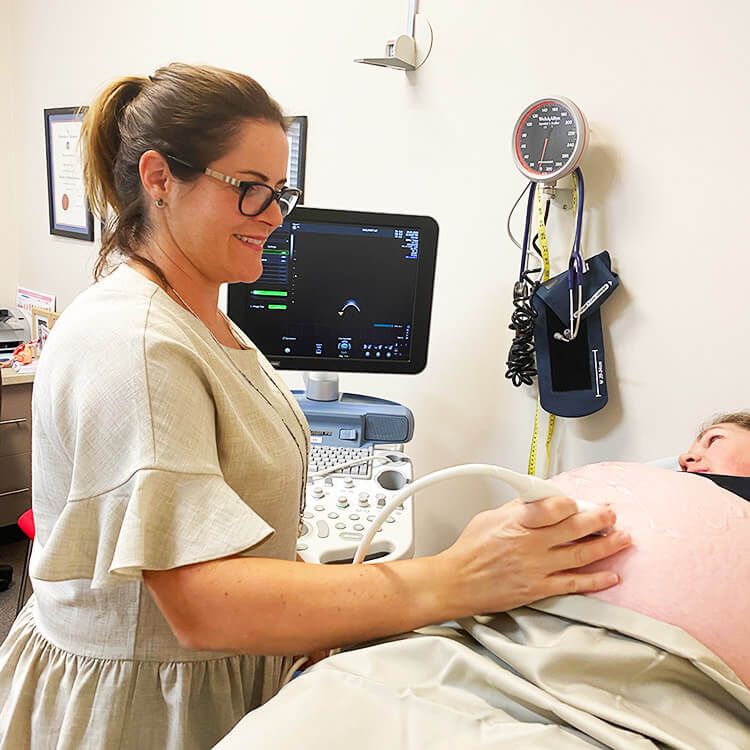The vast majority of babies conceived are healthy. As a women, and to a lesser extent, a man, becomes older, the risks of problems with their baby increases.
The main concern, which in itself is uncommon, is the risk of Down Syndrome. In this condition, the fetus has an extra chromosome 21 and is born with intellectual challenges and often physical health problems.
First trimester combined screen.
Screening tests for Down syndrome have been available for many years. For a long time we have offered the First Trimester Combined screening test which is based upon maternal age, hormone levels from maternal blood taken at approximately 10 weeks gestation, and the ultrasound measurement of nuchal translucency (neck skin thickness) of the baby measured at 12-13 weeks.
The result calculated is an estimate of the risk in the pregnancy of that baby having a chromosomal abnormality of chromosomes 21 (Down syndrome), 13, or 18. If the result indicates a high risk, parents may then choose to have further investigations. In the past, this has been achieved by either CVS (placental sampling at 12-13 weeks), or amniocentesis.
NIPS (non invasive prenatal screening).
A newer option now is the Non-Invasive Prenatal screen which detects small fragments of fetal DNA in a maternal blood sample. These can then be assessed for a number of abnormalities including those mentioned above. The test is highly sensitive in detecting problems, and also very specific in confirming that your baby is likely to be healthy.
NIPS has dramatically reduced the number of women requiring CVS and amniocentesis.
If you do choose to have NIPS then we would also recommend a 12 to 14 week ultrasound as an early assessment of your baby.
At present the test is about twice the cost of the combined screen, and the results take 2 weeks to become available.
Your Obstetrician will discuss which of these screening tests are best for you.
In general, women over 40 years of age or those who have a higher risk for other reasons, probably should consider NIPS, and women with lower risk may choose to have the cheaper & quicker combined screen.
Diagnostic tests for your pregnancy.
Diagnostic tests will give a 'yes' or 'no' answer regarding whether your baby has a particular health issue. The diagnostic tests are CVS (chorionic sampling) or amniocentesis.
These tests involve taking a sample from the placenta or from the fluid around the baby to check the chromosomes of the baby. They almost always provide a definite answer regarding the baby's chromosomes.
Diagnostic tests require insertion of a needle into the uterus, and do carry a 0.5% to 1% risk of losing the pregnancy. Hence, you will be provided with all the relevant information regarding risks and benefits before deciding to have this test.
18-20 week Mid trimester Ultrasound
This ultrasound assessment allows an ultrasound specialist to carefully check your baby’s structure and organ development is normal.
You will be referred to one of our local Ultrasound service providers for the test.
Most problems detected are minor, and if further assessment or advice is needed, your obstetrician will give you guidance.
An opinion from an ultrasound subspecialist in Melbourne will be sought if there are concerns on the first scan.
